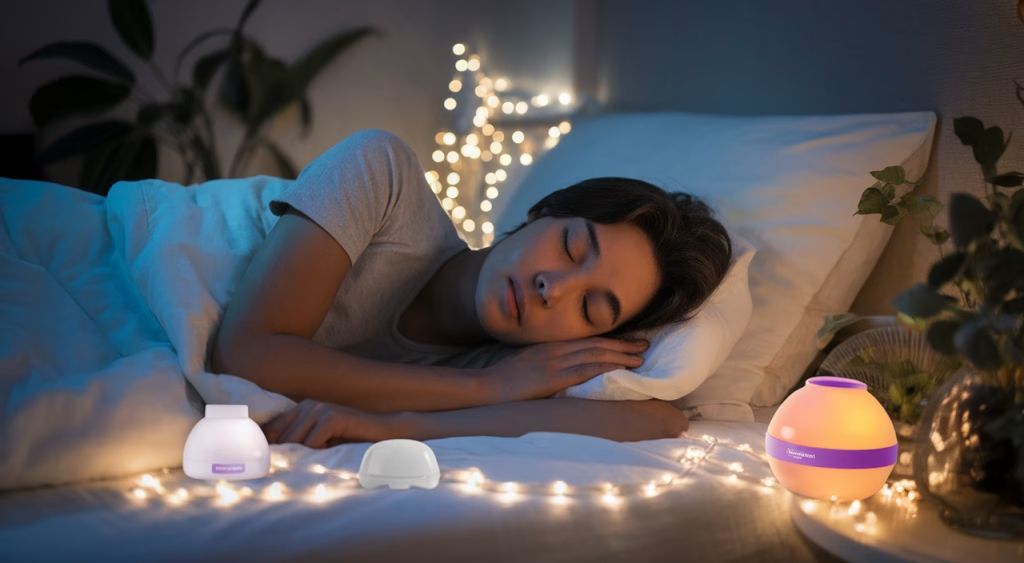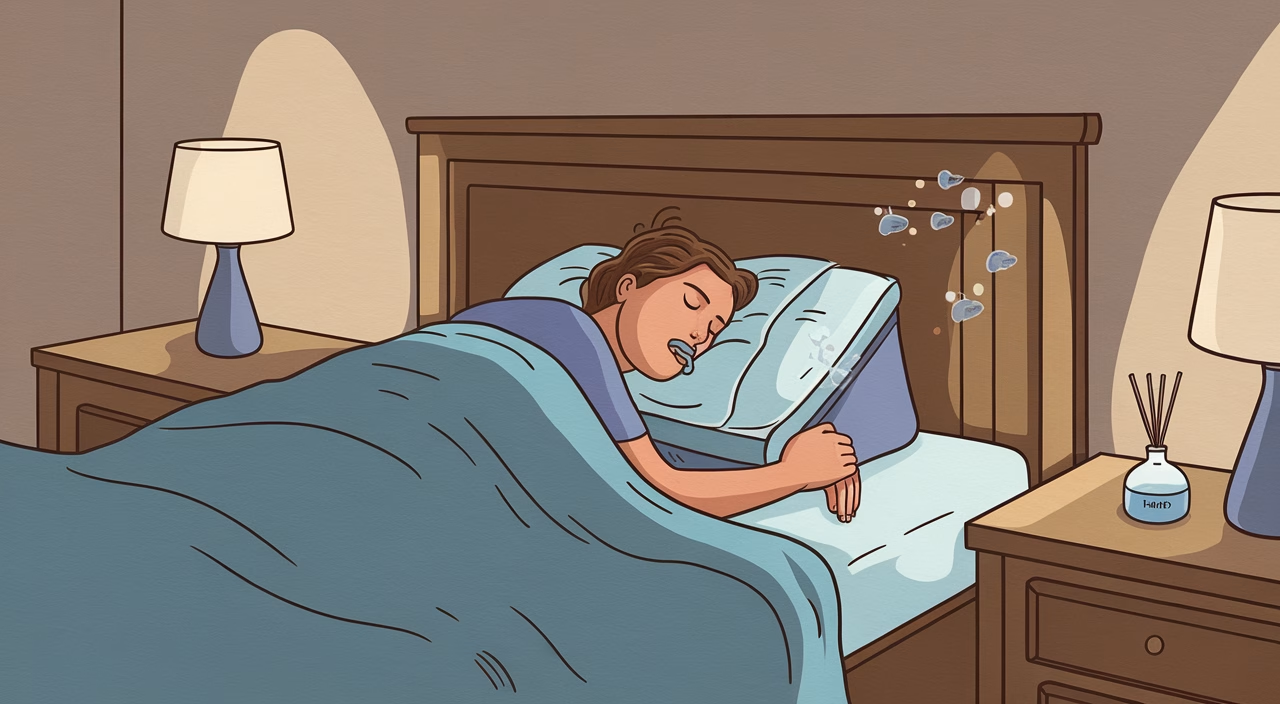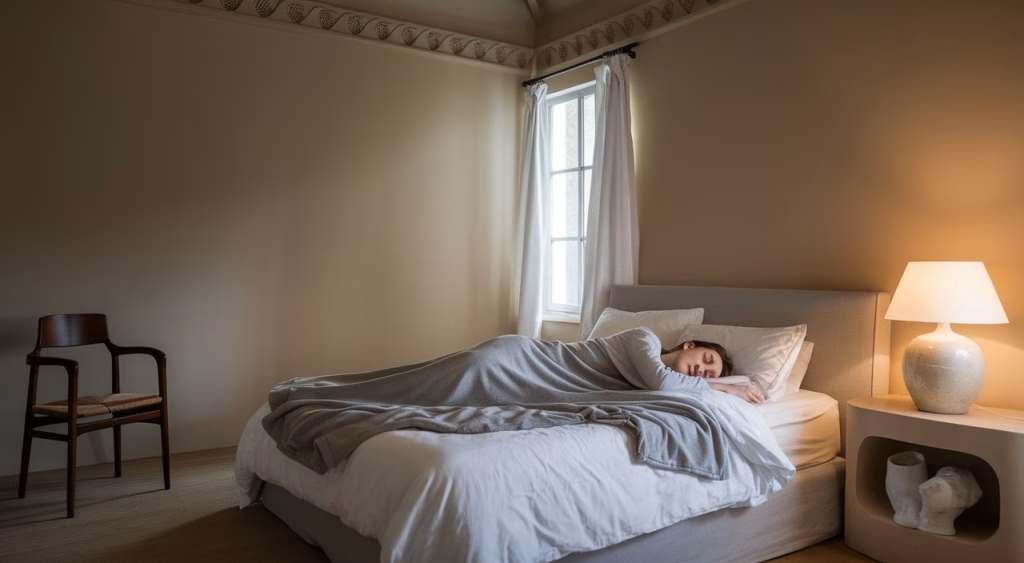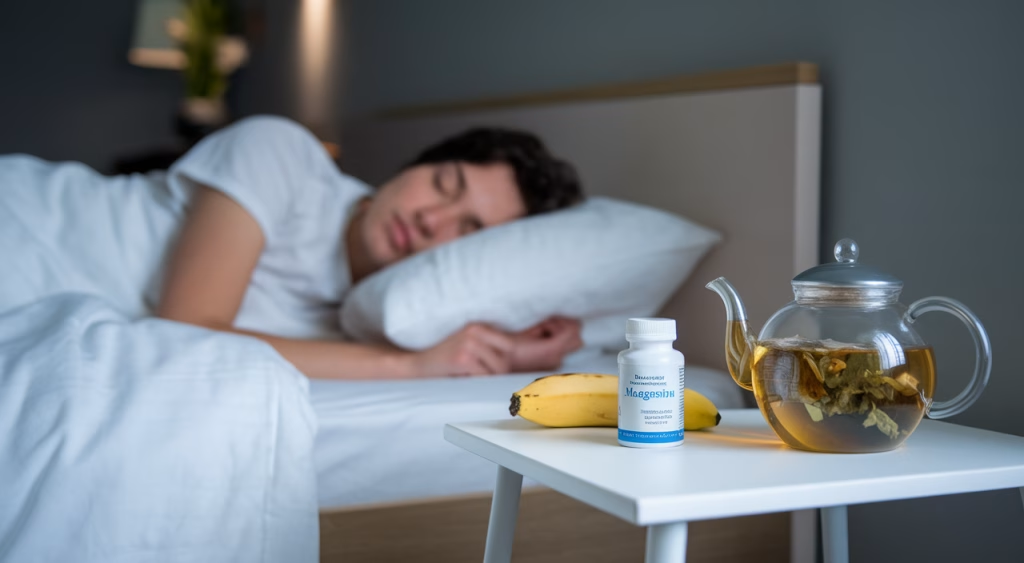What are the most effective snoring remedies that actually work?
The most effective snoring remedies depend on what’s causing your snoring — and that varies from person to person. From body positioning to natural remedies and medical treatments, there’s a range of snoring solutions based on your unique anatomy, sleep habits, and overall health. Understanding snoring causes is your first step toward finding the right treatment.
TL;DR: Quick Summary
- Snoring causes vary: Obstructed airways, sleep position, weight, nasal congestion, and alcohol all contribute.
- Lifestyle changes help: Adjusting sleep posture, losing weight, avoiding alcohol, and creating a sleep-friendly environment can reduce snoring.
- Natural snoring remedies: Nasal rinses, steaming, essential oils, and hydration are effective for many.
- Medical options: CPAP, oral devices, and minimally invasive procedures are available if home remedies don’t help.
- Best for side sleepers: Special pillows and breathing exercises can noticeably lower snoring volume.
Types of Snoring
Before you can treat snoring effectively, it helps to understand what kind you (or your partner) have. Each type reflects different snoring causes — and needs a tailored approach to find the right snoring remedies.
Nasal Snoring
Nasal snoring happens when airflow is restricted through your nose, typically due to allergies, colds, or sinus blockages. Picture trying to sip a smoothie through a clogged straw — that’s how your body feels when nasal passages are too narrow.
Mouth Snoring
This occurs when you breathe through your mouth while sleeping. It often signals blocked nasal airways or overly relaxed jaw and throat muscles. You’re more likely to experience this if you’re a back sleeper or have structural issues in the nose or jaw.
Throat-Based (Obstructive) Snoring
This is the loudest and most common type. Caused by vibration of the soft tissues in the throat, it can be linked to sleep apnea and requires medical attention for proper snoring prevention.
Tongue-Based Snoring
If your tongue collapses and obstructs airflow — often in back sleepers — it can trigger a deep, rhythmic snore. Weight and muscle tone also play a role in these snoring causes.
Lifestyle Changes for Better Sleep
Often, snoring isn’t just a harmless noise — it’s your body asking for help. These lifestyle adjustments can significantly cut down on snoring without needing devices or medications, making them excellent natural snoring remedies.
Sleep Position: Why Side Sleeping Matters
Back sleepers often experience worsened snoring due to the tongue and soft palate collapsing backward. Switching to your side opens the airway — it’s one of the best snoring remedies for side sleepers.
- Use a full-body pillow to maintain your side sleeping position.
- Try sewing a tennis ball into the back of your pajamas to discourage back sleeping.
Weight Management
Even a small reduction in weight can help decrease throat tissue that contributes to snoring causes. Fat around the neck puts pressure on breathing passages while sleeping, making weight management a crucial part of snoring prevention.
Avoid Alcohol Before Bed
Ever noticed that snoring gets louder after a few drinks? That’s because alcohol relaxes the throat muscles too much. We recommend stopping alcohol consumption at least 3 hours before bedtime for effective snoring prevention.
Enhance Sleep Hygiene
Create a regular sleep schedule, use blackout curtains, and keep your room cool and dark. Sleep quality matters more than quantity — and irregular sleep increases snoring risk.
Natural Remedies for Snoring
Natural snoring remedies at home can be surprisingly effective — and they’re free of side effects. These methods address common snoring causes naturally.
Stay Hydrated
When you’re dehydrated, nasal secretions thicken. This builds up and constricts airflow, becoming one of the preventable snoring causes. Aim for at least 8 glasses of water daily — more if you’re active.
Essential Oils & Steam
Eucalyptus or peppermint oils in a diffuser or hot water bowl can open nasal passages. Steaming the sinuses before sleep helps many people reduce nighttime snoring naturally.
Daily Nasal Rinse
A saline solution rinse can reduce inflammation and clear out irritants. This natural approach is especially helpful for allergy-induced snoring causes and serves as effective snoring prevention.
Strengthen Your Throat Muscles
Simple exercises like repeating vowel sounds or doing tongue curls 10 minutes a day can firm up your airway and reduce nighttime collapses. These exercises are among the most accessible natural snoring remedies.
Medical Treatments for Snoring
If you’ve tried snoring prevention tips but still struggle nightly, it’s time to consider medical interventions. These snoring remedies range from non-invasive to surgical options.
Oral Appliances
Custom mouthpieces gently pull your lower jaw and tongue forward to broaden the airway. These devices are a non-surgical favorite among ENT doctors and dentists for treating various snoring causes.
CPAP (Continuous Positive Airway Pressure)
Best for sleep apnea-related snoring causes, CPAP delivers constant air pressure through a mask. While it takes getting used to, it dramatically cuts down serious snoring and improves sleep quality.
Minimally Invasive Procedures
For stubborn snoring causes, an ENT may suggest radiofrequency ablation or palate implants. These outpatient treatments tighten tissues and open blocked passages for long-term snoring prevention.
Cost Guide: How Much Do Snoring Treatments Cost?
| Treatment Type | Low-End Cost | Mid-Range Cost | High-End Cost |
|---|---|---|---|
| Natural/Home Remedies | $0 | $20 | $50 |
| Anti-Snoring Mouthpieces | $50 | $300 | $600 |
| CPAP Machines | $300 | $700 | $1,200+ |
| Surgical Options | $1,500 | $3,000 | $10,000+ |
Prevention Tips for Chronic Snoring
If your snoring is linked to lifestyle or anatomy and not a more serious condition like sleep apnea, the key is consistency in these snoring prevention strategies.
Keep Allergies Under Control
Allergens inflame nasal tissue, creating common snoring causes. Use air filters, clean bedding often, and avoid known allergens to minimize nasal resistance and support natural snoring prevention.
Develop a Sleep-Friendly Routine
Wind down each night by calming the senses — dim lights, read a book, or meditate for 5 minutes. Stress and anxiety can tighten the body and worsen poor breathing habits during sleep, contributing to snoring causes.
Raise the Head of Your Bed
Use a wedge pillow or elevate your mattress 4-6 inches. Gravity then helps keep airways open instead of pulling soft tissues downward. This simple adjustment works well for side sleepers and back sleepers alike.
Partner Strategies
Snoring doesn’t just affect the sleeper — partners suffer too. Consider using white noise machines or earplugs. Sleep in separate beds temporarily, if needed, while you work on implementing effective snoring remedies.
Final Thought
If you’ve made it this far, you’re clearly motivated to stop snoring — and that’s a big first step. Whether it’s a shift in sleep position, a throat-strengthening routine, or a doctor-guided treatment plan, there’s a pathway to peaceful, silent nights. Every sleeper is different, so be patient with yourself as you explore what truly works. With the right snoring remedies and consistent snoring prevention approach, better sleep quality isn’t just a dream — it’s within reach.
Frequently Asked Questions
What triggers sudden snoring in otherwise quiet sleepers?
Weight gain, nasal congestion, or alcohol use often leads to sudden snoring episodes in people who previously didn’t snore.
Does snoring always mean sleep apnea?
No — while loud, chronic snoring can signal sleep apnea, not everyone who snores has the condition. A sleep test confirms the diagnosis.
Can kids snore too?
Yes, children can snore due to enlarged tonsils, adenoids, or allergies. Persistent snoring in kids should be evaluated by a pediatric ENT.
What is the most effective natural snoring remedy?
For most people, hydration, sleeping on the side, and nasal steam sessions offer natural relief without medications or devices.
Is there a cure for snoring?
Snoring can often be managed and reduced. In some cases, specific treatments or surgeries can offer permanent solutions.
Are anti-snoring devices effective?
Yes, mouthpieces or nasal dilators can significantly reduce snoring, but their success depends on matching the device to the person’s snoring causes.
Can snoring get worse with age?
Yes. Muscles lose tone with age, including those in the airway, increasing the likelihood of snoring over time.





